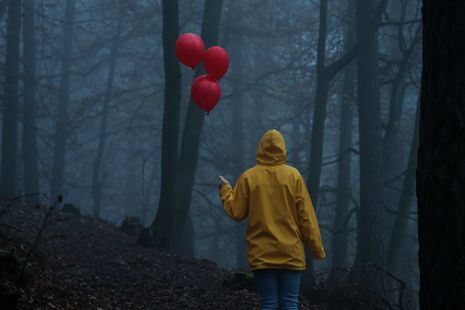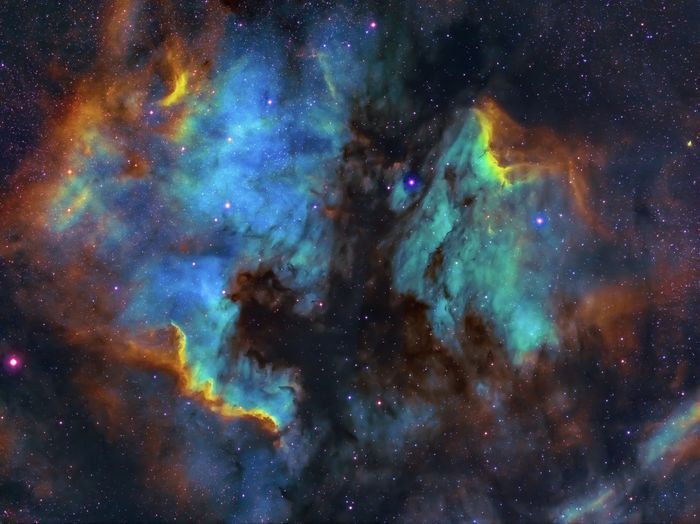Explaining the paranormal: What really goes bump in the night?
With Halloween behind us, Izzy Matear debunks some paranormal myths: from goosebumps to evil spirits

Chills when you enter a room, shadows that seem to move, whispering voices that no one else can hear. We’ve all had times when things just didn’t seem to have an explanation, but is it paranormal activity or something else entirely?
If you believe in ghosts, you are definitely not alone, as many cultures have prevalent beliefs in the paranormal dating back centuries. As many as one in three Brits express a belief in the supernatural, according to a BMG survey. But with no factual evidence to prove ghosts exist, why is this ideology so common?
Psychologists have suggested that a belief in the supernatural serves as a protection from unwanted realities. When something unexpected and potentially traumatic occurs such as a job loss or death in the family, believing there was a force behind it can help with acceptance. Believing in ghosts also means that we are not confronted with our own mortality.
There is also the influence of popular culture, in which ghost stories, horror films and events like Halloween introduce people at an early age to the concept of the paranormal. Being surrounded by other-worldly ideas may increase one’s susceptibility to believe them – for example, conformity research suggests that it is more likely for people to believe in something that is deemed to be popular.
The appeal of the paranormal also lies in its explanatory power, as it can provide answers for events where scientific knowledge seems to fail. However, when taking a closer look at allegedly preternatural events, there is in fact typically a scientific explanation.
We should be scared of how susceptible we are to the power of suggestion
In her TED Talk, the investigative journalist Carrie Poppy detailed her terror at what appeared to be an evil spirit causing her to have a sinking feeling and hear whooshing sounds as though something was passing through her. However, it was later discovered that her symptoms were the result of a carbon monoxide leak. The symptoms of carbon monoxide poisoning include a pressure on your chest, auditory hallucinations and an unexplained feeling of dread. For anyone experiencing similar symptoms, perhaps invest in a carbon monoxide detector as it may save your life!
In fact, most so-called ‘paranormal’ activities have perfectly sound explanations. If you find yourself hallucinating a dark presence at night whilst you lay immobile and speechless, you probably have some sort of sleeping disorder. It could be a characteristic manifestation of sleep paralysis, which occurs when people wake up before the REM (rapid eye movement) part of the sleep cycle is over. Or, you may be suffering from chronic sleep deprivation, which can cause delusions and hallucinations.
Invisible energy fields may also be the cause. Electromagnetic fields are generated by power lines and electronic devices, so surround us constantly. The cognitive neuroscientist Michael Persinger of Laurentian University in Canada and his colleagues detailed a strange case in the journal Perceptual and Motor Skills. A girl had become convinced that she had been impregnated by the Holy Spirit and could feel the presence of an invisible baby by her left shoulder. However, once her bedside clock had been removed, these feelings stopped. It was theorised that magnetic pulses from the clock had been interfering with the girl’s brain. Persinger argued that some people are more prone than others to disruption of the temporal lobes, the area in the brain where information is synthesised.
Infrasound is another invisible force that you may come into contact with, as it can be emitted by natural sources such as the wind or storms. Infrasounds are sound waves with a frequency so low that they cannot be heard by humans. But they can be felt, and have been shown to cause feelings such as anxiety, as well as chills running down the spine.
Supposed paranormal activity could also just be in your head. The psychologist Christopher French of Goldsmiths' College of the University of London and his colleagues showed participants a video of a psychic supposedly bending a key with their mind. The psychic then suggested to some groups that the key was still bending once they put it down (it wasn’t), and forty percent of these participants concluded it was still bending. Furthermore, when another person in the room said that the key moved, the share of who agreed increased from forty to sixty percent. Perhaps, then, rather than ghosts, we should be scared of how susceptible we are to the power of suggestion.
Overall, no concrete evidence has been found as of yet to prove the existence of the paranormal. While one day it may be shown that ghosts really do exist, at least for the meantime, science holds all the answers for weird and wonderful phenomena.
 News / Eight Cambridge researchers awarded €17m in ERC research grants27 December 2025
News / Eight Cambridge researchers awarded €17m in ERC research grants27 December 2025 News / Downing investigates ‘mysterious’ underground burial vault 29 December 2025
News / Downing investigates ‘mysterious’ underground burial vault 29 December 2025 Lifestyle / Ask Auntie Alice29 December 2025
Lifestyle / Ask Auntie Alice29 December 2025 Sport / Hard work, heartbreak and hope: international gymnast Maddie Marshall’s journey 29 December 2025
Sport / Hard work, heartbreak and hope: international gymnast Maddie Marshall’s journey 29 December 2025 Interviews / Meet Juan Michel, Cambridge’s multilingual musician29 December 2025
Interviews / Meet Juan Michel, Cambridge’s multilingual musician29 December 2025









